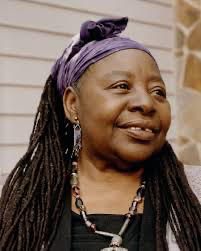
In her recent NYTimes article (What if Instead of Calling People Out, We Called Them In?, 11.18.20), journalist Jessica Bennett introduces us to Professor Loretta Ross, who is combating “cancel culture” with a popular class at Smith College.
Ross, an activist of more than 40 years, helped organized a delegation of women of color at the March for Women’s Lives in 1989.
In this shortened, edited version of the original article, I share some of Ross’s thoughts regarding how the current call-out culture inhibits, rather than promotes, change.
Bur first, a definition: Call-out culture is the act of publicly shaming another person for behavior deemed unacceptable, and one of the behaviors that can add up to cancellation.
Natalie Wynn, a popular YouTuber, put together a kind of taxonomy of cancel culture, after being “canceled” multiple times:
- presumption of guilt (without facts or nuance getting in the way);
- essentialism (when criticism of bad behavior becomes criticism of a bad person);
- pseudo-intellectualism (proclaiming one’s moral high ground);
- unwillingness to forgive (no apology is good enough);
- contamination, or guilt by association.
– – – – – – – – – – – – – – – – – – – – –

Photo: Peyton Fulford,
The New York Times
“I am challenging the call-out culture,” Professor Ross said. “I think you can understand how calling out is toxic. It really does alienate people, and makes them fearful of speaking up.”
This perspective has made Professor Ross an unlikely figure in the culture wars. A radical Black feminist who has been doing human rights work for four decades, she was one of the signatories of a widely denounced letter in Harper’s Magazine, for which she herself was called out. For Ross, civil conversation between parties who disagree has been an essential part of activism, including her own, for quite some time.
Professor Ross believes that call-out culture has taken conversations that could have once been learning opportunities and turned them into mud wrestling on message boards, YouTube comments, Twitter and at colleges like Smith, where proving one’s commitment to social justice has become something of a varsity sport.
“I think we overuse that word ‘trigger’ when really we mean discomfort . . . We should be able to have uncomfortable conversations…. I think we actually sabotage our own happiness with this unrestrained anger. And I have to honestly ask: Why are you making choices to make the world crueler than it needs to be, and calling that being ‘woke’?”
The antidote to that outrage cycle, Professor Ross believes, is “calling in.” Calling in is like calling out, but done privately and with respect. “It’s a call-out done with love,” she said. That may mean simply sending someone a private message, or even ringing them on the telephone (!) to discuss the matter, or simply taking a breath before commenting, screen-shotting or demanding one “do better” without explaining how.
Professor Ross is definitely not conflict averse. Conflict, however, is not synonymous with shaming, and shaming is counterproductive. Multiple studies have found that shaming makes people more hesitant to speak up or ask questions, and more resistant to change.
Calling out assumes the worst, while calling in involves conversation, compassion and context. It doesn’t mean a person should ignore harm, slight or damage, but nor should she, he or they exaggerate it. “Every time somebody disagrees with me it’s not ‘verbal violence.’” Professor Ross said. “I’m not getting ‘re-raped.’ Overstatement of harm is not helpful when you’re trying to create a culture of compassion.”
“You can’t be responsible for someone else’s inability to grow,” says Professor Ross said. “So take comfort in the fact that you offered a new perspective of information and you did so with love and respect, and then you walk away.”